Seasoned homeowners weigh in on what caught them off guard, what delighted them and what lessons you can learn from them.

Talk to any homeowner and they’ll probably tell you how excited they were when they first bought their home. After they’ve lived there a while, they’re likely to tell you about the things they didn’t expect — for better or worse. Things like embracing the freedom of owning their own property and building memories there, to unexpected costs and what seems to be an endless list of maintenance tasks.
We recently asked first-time homeowners on Facebook to tell us about “the unexpected aspects of homeownership everyone should know” More than 4,600 people responded. Their answers provide useful guidance for first-time buyers looking for a realistic picture of what to expect.
What surprised homeowners after they bought their first home?
1. The amount of maintenance a home requires — especially if it’s a single-family house

The one thing that seems to take first-time home buyers by surprise more than anything else is maintenance. This includes the amount required to keep a home functioning, the cost of it and how it never seems to end.
About 32% of buyers surveyed by Zillow in February 2022 expressed having buyer’s remorse after purchasing a house that needed more work or maintenance than they expected.
“Everything breaks down,’’ home buyer Dawn Alexander-Martin wrote about her first few months of ownership. “The washing machine was broken, water came into our sliding door in the lower level when the snow melted. The worst part was the driveway sunk into a 3-foot hole.”
Alison Miller, a real estate agent in Branchville, N.J., wrote that “things happen, even when the home and property are maintained.” Those costs add up, she said, especially if you need to outsource maintenance instead of doing repairs yourself.
The amount of maintenance required depends entirely on the home. For instance, a condo is likely to have far less maintenance because a homeowners association takes care of common areas like the exterior, landscaping and shared hallways. (Condo owners’ responsibility usually consists of maintaining and repairing appliances inside the unit and taking care of the unit’s interior.)
Some things you may learn: how amazingly fast grass grows, why it’s important to clean your gutters regularly, and how to clear a clogged drain.Home buyer tip: Have a cash reserve to deal with emergencies. If your appliances are old or certain parts of your home, such as the roof, have been neglected, the costs could be substantial. Know your limits and what you’re willing to take on.
2. The added — and changing — costs of property taxes and homeowners insurance

When you buy your home with a fixed-rate mortgage, you may think that the amount of your initial mortgage payment will remain the same for the life of the loan. But the monthly payment almost always includes property taxes and property insurance, which the mortgage servicer collects in an escrow account and pays for you. Those costs change over time.
“Taxes will go up, as will insurance,’’ wrote Sandi Diana-Schultz of Lombard, Illinois. ”It’s a given. Make sure you can afford MORE THAN you are approved for, as even with a fixed rate mortgage, costs will increase steadily — and often quicker than you may be prepared for.”Home buyer tip: Pay attention to your escrow statement both at closing and as you make payments over time. The escrow accounting that comes with your statement shows you the share of your mortgage payment that is going to things other than paying for your home.
3. The degree to which you could benefit from tax write offs

Gilbert Arciniega acknowledged the expense and time commitment to chores, but noted that the absence of landlords and tax breaks are big pluses.
The “big benefit is writing off interest on your taxes,’’ he wrote. “(And) freedom! No landlords to tell you how you can live. And you can do whatever you want with the house (sort of).”
For information on the potential tax benefits of owning a home, read Tax Breaks for Homeowners.
4. The degree to which neighbors can affect the quality of your life

As much as you love your home, life there can be gloriously elevated or horribly impacted by the people living around you.
“Check out the neighbors!’ admonished Lee West. “Not just a quick drive by. Walk through the neighborhood, talk to them, visit with them. Nothing worse than buying the house of your dreams in the middle of Hades!”
Bill Lawton agreed. “Before you buy, meet the neighbors!,” he wrote. “They can make or break your experience, and impact the value of your equity.”
And Donna Petraglia wrote, “For me, it’s the neighbors. Not just the neighborhood itself, but who you are going to have to look at and listen to when you walk out your door.”
Cindy Weina agrees. She ended up with “great neighbors always willing to say hello or help when needed,” a pleasant surprise that enhances the quality of life at home.Home buyer tip: Visit the home you’re considering and the neighborhood during a time when neighbors are likely to be out and about. Visit during different times. If you’re a night owl or early riser, take note of the noise or quiet during the evenings and mornings. You don’t want to come off a Friday night swing shift only to find that everyone on your block likes to mow their lawn first thing Saturday morning.
5. The amount of knowledge required to keep up a home
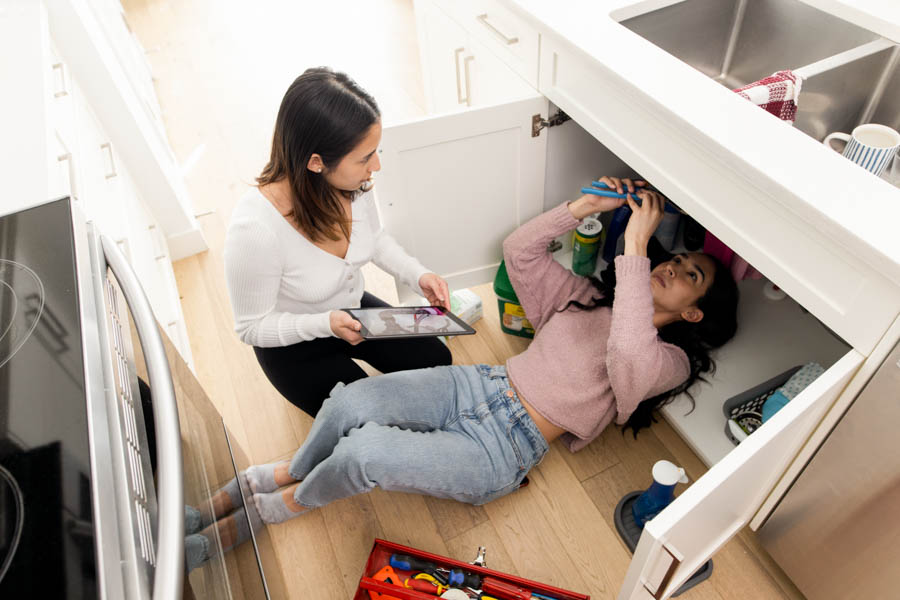
Remember when something broke and you called the landlord or property manager to fix it? You’re that person now. Think about the things that make your home cozy and functional: working heating and air conditioning systems and appliances, unobstructed sewer pipes and water-tight plumbing. If it breaks, you’ve got to fix it yourself or hire someone to do it.
“Know your house,” wrote Gloria Hernandez Denison, “the sprinkler system, water and gas valve shut off, the hot water heater, water softener. Learn to fix things.”
Adele Kaminsky Grudman offered a more expansive list: The cost of utilities, tax bills and tax hikes, the costs of keeping up a yard or pool, the cost of remedying hazards such as lead paint, asbestos and radon, or fixing a sea wall if you have one.Home buyer tip: Have the home and property thoroughly inspected before you buy it to reduce the number of surprises. Develop a budget for things that are likely to need fixing at some point. Price out renovations ahead of time to leave room for the unexpected.
6. The relatively stable monthly living costs, even when the real estate market is volatile
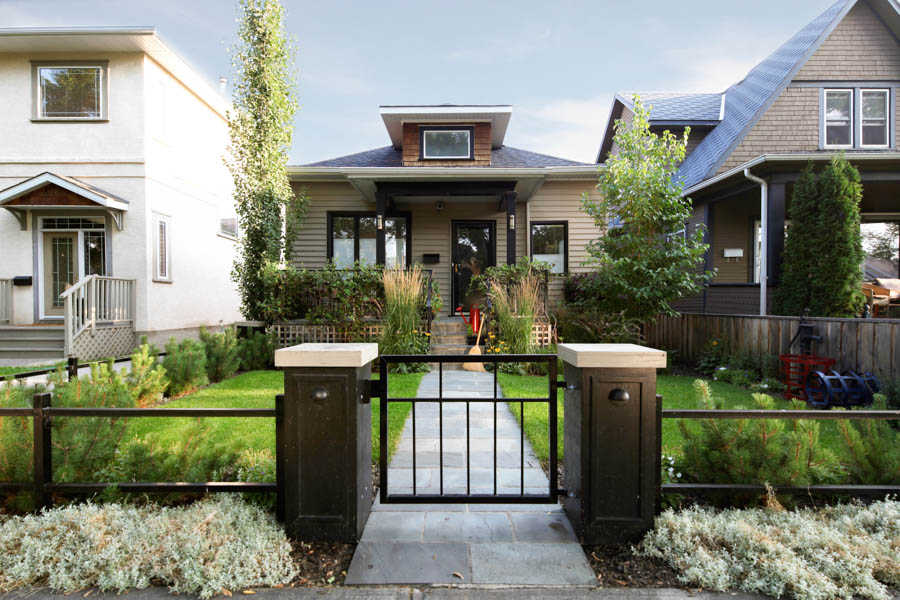
Robin Herrera said her home was the best investment she’s ever made.
“When the (stock) market goes down, poof there goes your money and you have to wait until the market comes back to gain what you lost and there are fees involved for someone to take care of your investments,’’’ she wrote. “On the other hand, if the housing market goes down, you still have a roof over your head. Unless you’re anxious to sell, you have not really lost anything because it’s still your home. Of course there is maintenance on anything you own, but unlike cars, your value goes up, not down.”
7. How external factors can affect your property
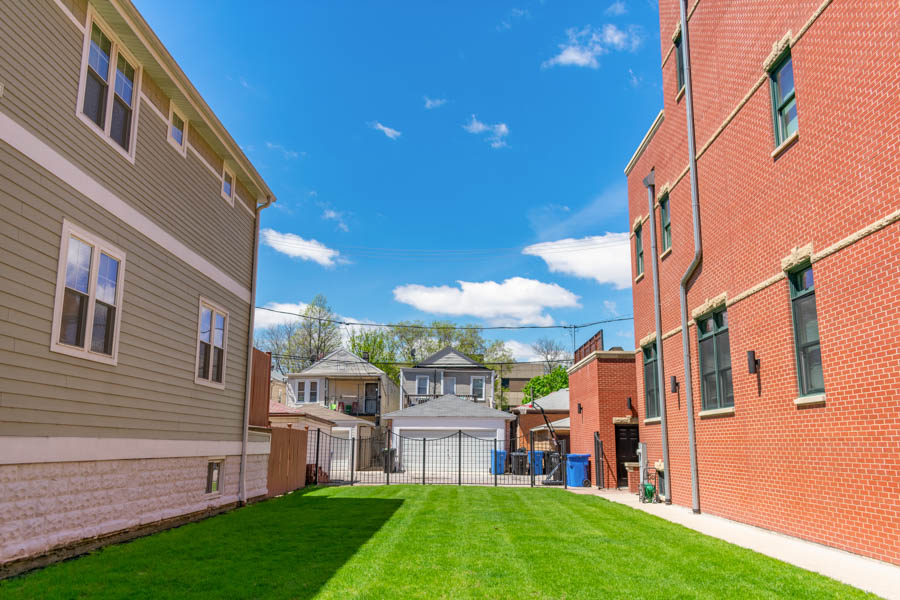
Any number of things can affect what you can do with your home. If your home is in a subdivision covered by a homeowners association, you’ll need to know the rules of what you can and can’t do with your property. Or your property may be impacted by county zoning rules or projects that could change the character of your neighborhood.
Marie Camp of Lexington, South Carolina, wrote, “Make sure you look at the whole property and what it entails. We didn’t know we had pipelines and didn’t know we couldn’t build a shed or didn’t know they could take away our trees anytime. Just be very, very careful.”
Cathy Mccoy of Monticello, Illinois, advised buyers to pay attention to adjacent properties.
“If the property borders anything other than a road and other residential properties, look at that carefully!,’’ she wrote. “Abandoned railroad tracks, a corn field, an empty lot, anything that can change has the potential to change your home life.”Home buyer tip: Thoroughly research the property and whatever long-term plans are on file with your county planning department that might impact your neighborhood.
8. Maintenance isn’t a one-and-done thing. Some things require scheduled maintenance
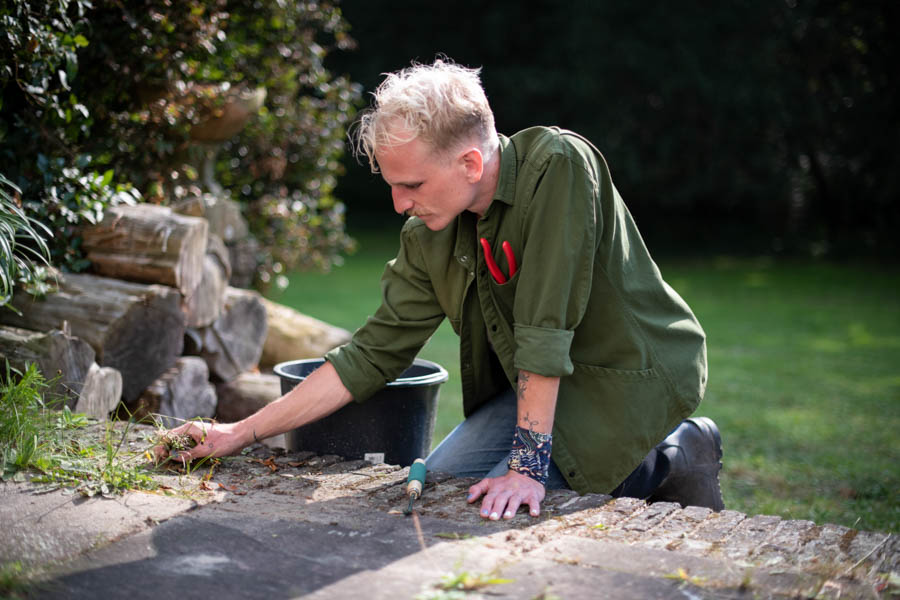
Some systems in your house require annual inspections and tuneups. Here are some of the things called out by homeowners:
“You need to have your furnace and air conditioning serviced yearly,” wrote Paula Himmelstein of Amelia, Ohio.
“You have to drain your water heater once a year and check your anode [a replaceable steel rod that helps prevent corrosion inside the tank]. And if you have your own private septic system, you better learn how to do that, too. Remember your house breathes. You have plumbing pipes for venting. Make sure you clean out your dryer vents and buy a fire extinguisher just in case,” said another user, Seever Lakes.
“How to maintain your home on a proactive schedule — not always possible, I know, but clean your gutters, pay attention to your roof and when to paint exterior or replace rotted pieces, things like that.” — Gerri Lamb Roberson of Marietta, Georgia.Home buyer tip: Keep a calendar for scheduled repairs and stick to it. Try our monthly maintenance checklist to get started.
9. Getting to know your home’s quirks
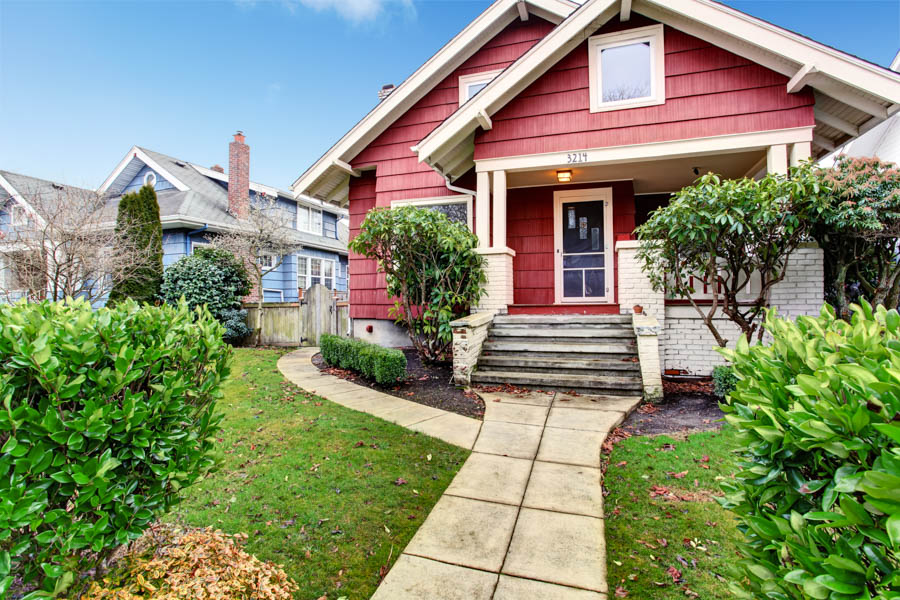
There’s a certain comfort in getting to know your home. Like a car you’ve been driving for a while, your house will “tell” you when something needs tending to.
Homeowner Harlain S. Ruff advises that you “Listen to your home. Find out what are ‘normal’ sounds and what might need attention. It takes a few years to learn these patterns.”
Ruff noted that each season brings its own concerns. For instance, he discovered that two pipes in his home are prone to freezing when the temperature dips below 20 degrees. During the winter, he keeps an eye on the temperature and prevents freezing by opening the cabinet doors and running a little water through the pipes at night.
10. That you are liable for repairs at your condo even if the problems existed before you moved in
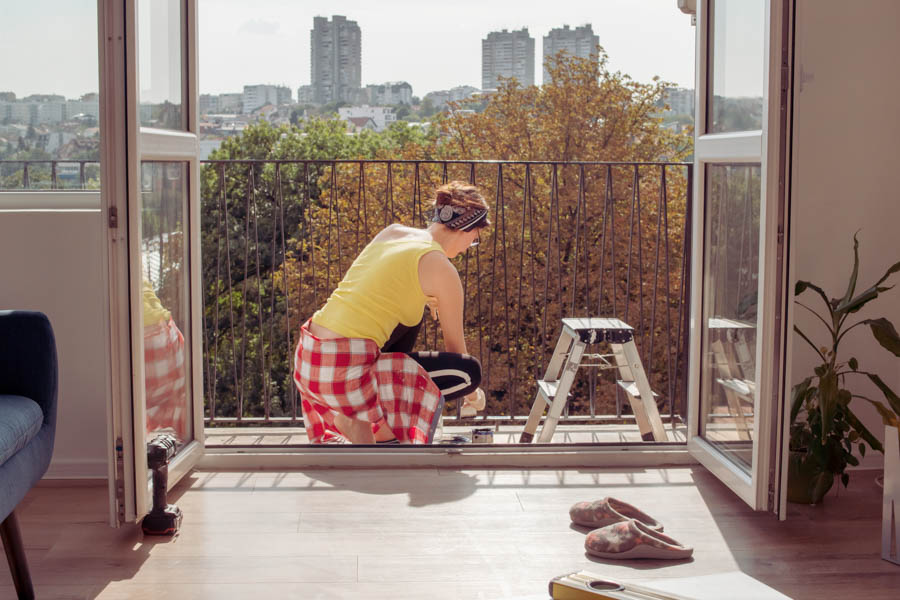
Dan Mortimer said he assumed he was leaving all maintenance issues behind when he sold his single-family home after 42 years and bought a condo. He discovered building maintenance was not kept up, and he was hit with a special assessment to pay for maintenance that he said should have been done years before he bought the condo.Home buyer tip: Find a real estate agent with experience in condo ownership so they can help you navigate the process. Read all of the details before signing a contract. Ask to see the HOA’s minutes and pay attention to their financials.
11. The degree to which you become attached to your home, and feel joy in improving it
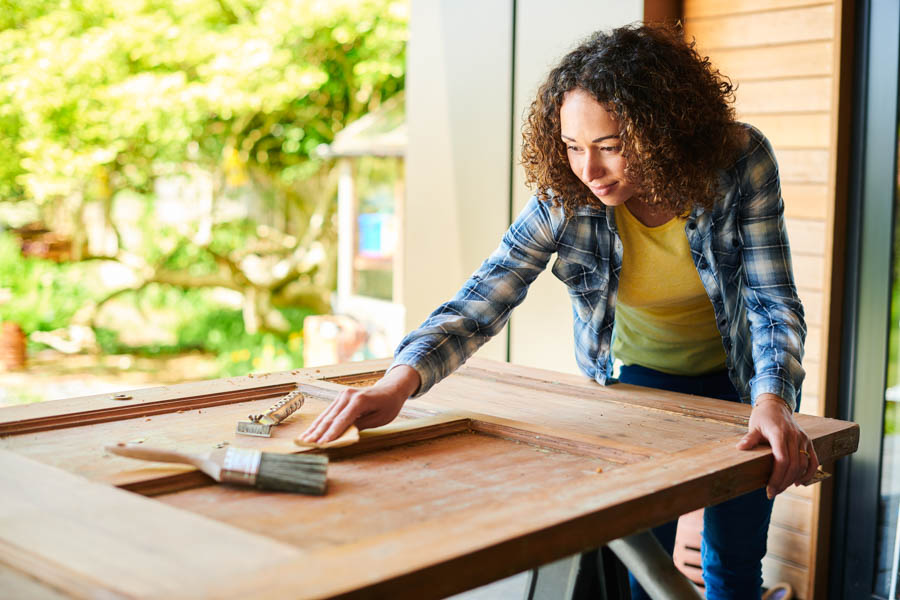
Live in a place for any length of time and memories — and feelings — will quickly attach to it. Leaving those memories behind can be difficult, especially if you’ve made improvements yourself that have left you with a feeling of accomplishment.
It’s surprising how genuinely obsessed you can become with something you changed,’’ wrote Amy Ulrich. “Change a faucet to something you like better and it’s ‘I did that! Omg, it’s sooo much better.’ You tell yourself to get a grip, it’s only a faucet. But you realize the new one sits far enough out that I can wash my hands without bumping the sink. And, hey; I can get a glass of water without playing the tilting game. So, silly as it seems, it’s worth getting excited about.”
Said Gail Driscoll: “You may fall in love with the place and have a very hard time leaving (selling it) — the good news and the bad news.”
Realizing that the next owner is going to create their own memories can be tough for some people. “When you sell,’’ wrote Brenda Pinkston, “all those wonderful memories in the house that are priceless to you really don’t add to the value of the house. Someone is gonna paint right over them and start making new memories.”
12. Just how much satisfaction you get from knowing it’s yours
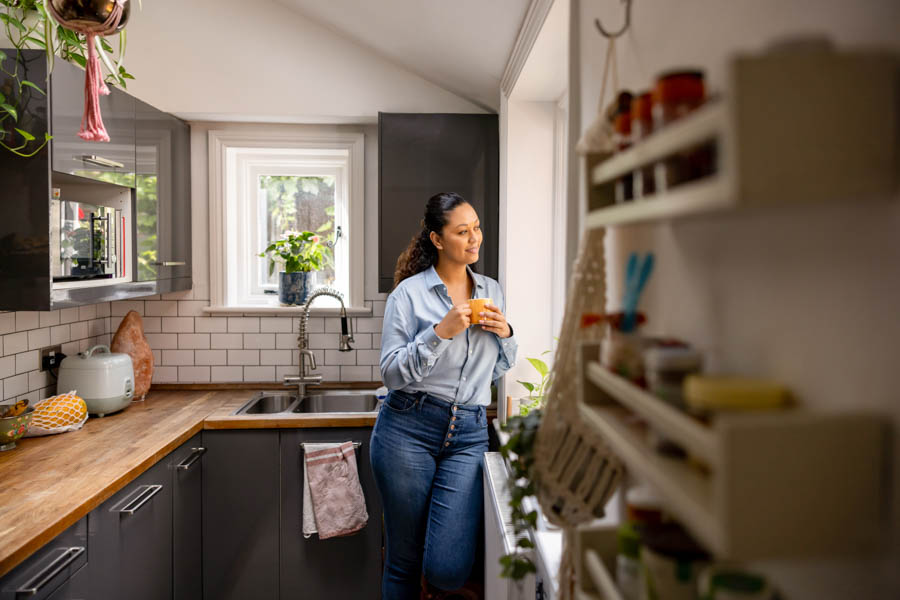
Judy West summed up her feelings after adding shade trees, an orchard, archways over entryways, hunting down deals at estate sales and end of season bargains to improve her yard and ability to entertain at home: “Every improvement you make,’’ she wrote, “you can stand back and proudly know “It’s yours!!!”

